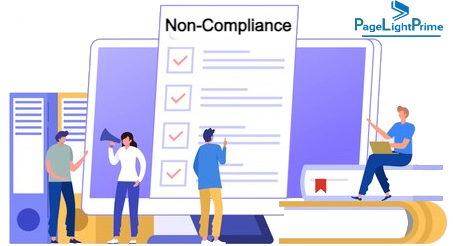Ensuring Trust and Justice: Your Guide to IOLTA Compliance for Law Firms
In the realm of legal practice, trust and integrity are paramount. Did you know that nearly 80% of clients consider trustworthiness the most important factor when choosing a lawyer? This underscores the critical role that ethical conduct plays in maintaining client confidence and upholding the reputation of the legal profession.
One key aspect of demonstrating trustworthiness is compliance with the Interest on Lawyers Trust Accounts (IOLTA) regulations. These guidelines ensure that client funds are managed ethically and responsibly, reflecting a commitment to justice and accountability within the legal profession. In this comprehensive guide, we delve into the essentials of IOLTA compliance, from understanding its principles to navigating common challenges and leveraging its benefits for law firms.
Written by Knowledge Team, posted on May 24, 2024

Understanding IOLTA: Fulfilling Your Ethical Obligations
What are IOLTA accounts and how do they work
IOLTA accounts serve as repositories for client funds that are nominal in amount or held for a short duration. Instead of accruing interest directly for clients, the interest generated from these accounts is pooled to support legal aid programs, promoting access to justice for underserved communities.
The benefits of IOLTA programs for lawyers and society
Beyond fulfilling ethical mandates, participation in IOLTA programs fosters a sense of social responsibility within the legal community. By contributing to legal aid initiatives, lawyers play a direct role in enhancing equal access to legal services, thereby bolstering societal equity and fairness.

Maintaining IOLTA Compliance: A Step-by-Step Guide
Ensuring compliance with IOLTA regulations begins with the establishment of an appropriate trust account. Below, we outline the essential steps involved in opening an IOLTA account for lawyers and detail the ongoing reporting requirements necessary to maintain compliance.
Selecting a Compliant Financial Institution
Before opening an IOLTA account, it’s crucial to choose a financial institution that offers IOLTA-compliant accounts. Look for banks or credit unions that understand the specific requirements for managing lawyer trust funds. Consider factors such as reputation, reliability, fees, and the ease of integration with your firm’s accounting systems.
Gathering Necessary Documentation
Prepare the required documentation to open an IOLTA account. This typically includes identification documents for authorized signatories, proof of the law firm’s existence (such as articles of incorporation or partnership agreements), and any additional forms or agreements provided by the financial institution.

Completing the Account Opening Process
Work closely with the chosen financial institution to complete the account opening process. Ensure that all required paperwork is accurately filled out and submitted according to the institution’s guidelines. Be prepared to provide information about your law firm’s practice areas and typical client transactions, as this may impact account eligibility.
Establishing Proper Recordkeeping Procedures
Once the IOLTA account is opened, establish robust recordkeeping procedures to ensure compliance with reporting requirements. Maintain detailed records of all transactions involving client funds, including deposits, withdrawals, transfers, and interest earned. Implement a system for categorizing and tracking funds to facilitate accurate accounting and reporting.

Understanding Ongoing Reporting Requirements
Familiarize yourself with the ongoing reporting requirements mandated by your jurisdiction. These may include regular reconciliations of the IOLTA account, submission of periodic reports to the appropriate regulatory bodies, and compliance with any additional recordkeeping or disclosure obligations.
Implementing Internal Controls
Put in place internal controls to safeguard client funds and prevent unauthorized access or misuse. This may involve procedures such as requiring dual authorization for withdrawals, conducting regular internal audits, and segregating client funds from firm operating funds.
Staying Informed and Updated
Stay informed about changes to IOLTA regulations and reporting requirements. Monitor updates from relevant regulatory agencies or bar associations and seek guidance from legal professionals or consultants specializing in trust account management if needed.

Common IOLTA Compliance Challenges and Solutions
Best Practices for IOLTA Accounting Software or Minimizing Errors in IOLTA Accounting
Inaccurate accounting practices can jeopardize IOLTA compliance and erode client trust. Educate staff members on proper accounting procedures, conduct regular training sessions, and leverage technology solutions to minimize errors and ensure accuracy in financial reporting.
Safeguarding client funds: Best practices for IOLTA management
Effective management of IOLTA accounts requires stringent measures to safeguard client funds against misappropriation or fraud. Implement internal controls, such as dual authorization for withdrawals and regular audits, to mitigate risks and enhance accountability.

Disciplinary Actions for IOLTA Non-Compliance
Highlighting the potential consequences of non-compliance underscores the importance of adhering to IOLTA regulations. From fines to professional sanctions, law firms risk serious repercussions for failing to meet their ethical obligations. Understanding these consequences can motivate proactive measures to address compliance challenges effectively.
Technology and automation: Streamlining your IOLTA compliance process
Embracing technology can streamline IOLTA compliance processes, reducing administrative burdens and enhancing efficiency. Explore software solutions tailored to legal accounting and trust management to automate routine tasks and improve compliance workflows.

Benefits of IOLTA Compliance: Beyond Legal Requirements
The social impact of IOLTA: Supporting access to justice
By participating in IOLTA programs, legal practitioners play a pivotal role in advancing access to justice initiatives. The funds generated through IOLTA accounts support critical legal aid services, empowering marginalized individuals and communities to assert their rights and navigate the legal system effectively.
Upholding the legal profession’s image and public trust
IOLTA compliance not only fulfills ethical obligations but also reinforces the integrity and credibility of the legal profession. By adhering to rigorous standards of financial accountability and transparency, lawyers demonstrate their commitment to ethical conduct and bolster public trust in the legal system.

In conclusion, IOLTA compliance is not just a legal requirement but a moral imperative for legal professionals. By understanding the principles of IOLTA, navigating compliance challenges, and leveraging its societal benefits, law firms can uphold the highest standards of trust, integrity, and justice in their practice.
